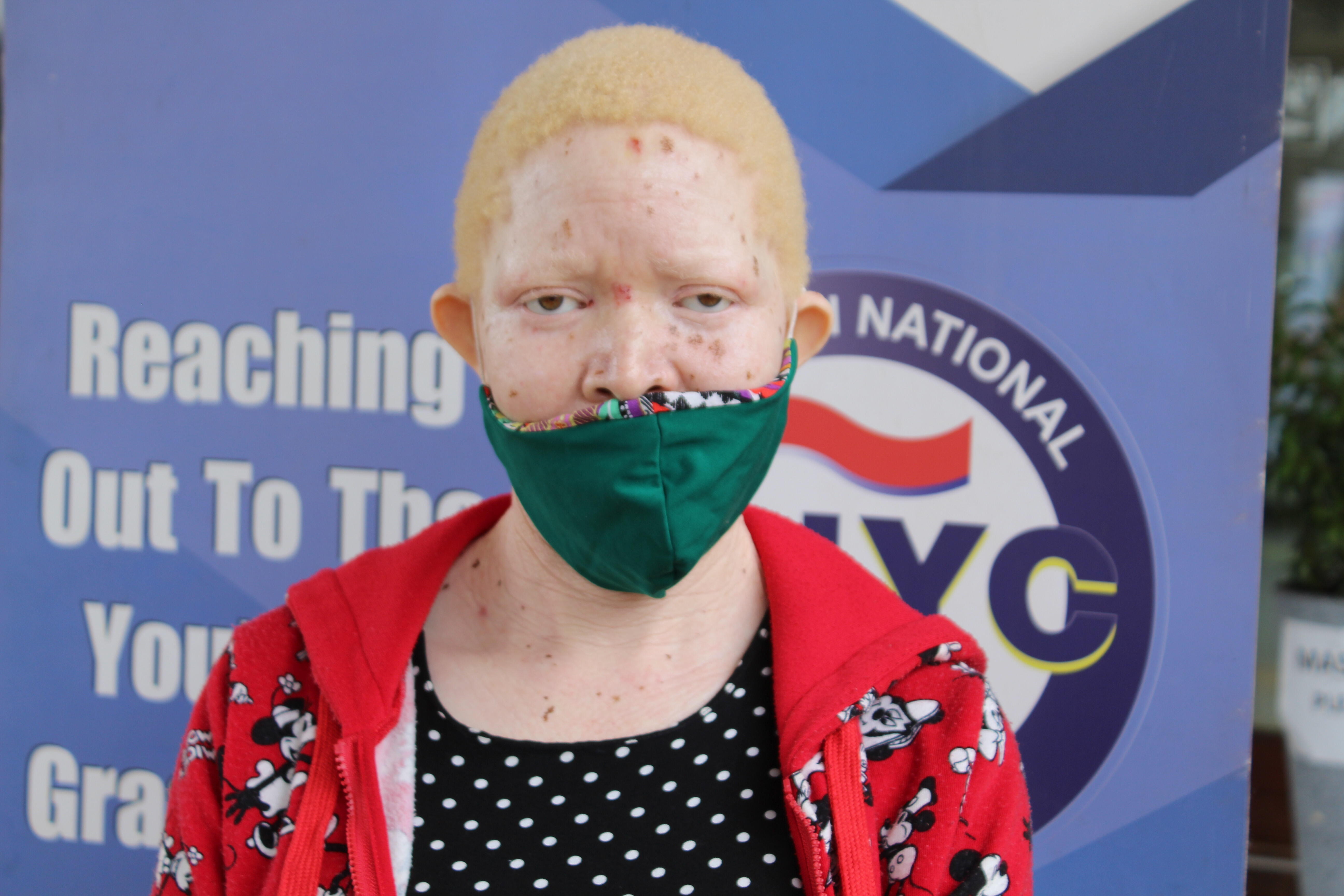When asked what participating in the Youth Bill Consultations meant to her, 30 year old Nelisiwe Shiba from Mnyokane in the northern part of the Hhohho region, had this to say.
“This is a great opportunity,” an ecstatic Nelisiwe noted. “It will ensure the views of the youth, particularly those with disabilities, are represented in the Youth Bill.
Shiba is a young woman with albinism. Because of the high unemployment rate in the country, Shiba is yet to get formal employment after completing her tertiary studies in 6 years ago. For that reason, her interests in the Bill are on its powers to assist the Youth Council in achieving the ease of doing business for young people.
“I’m currently in the process of starting my own business. The registration process is tedious and complicated. Once established, the Youth council should look into this so that more people are attracted to establish businesses in the country and create employment for others,” explained the aspiring business woman.
The consultations of the Youth Bill in Eswatini were officially launched by the Ministry of Sports Culture and Youth Affairs on the 7th of October 2020 at Sibane Hotel. Subsequent consultations for the other 3 regions were scheduled to occur throughout the course of October. These are facilitated by the Eswatini Youth Council with support from UNFPA.
Eswatini’s youth constitute about 70% of the population; hence the diversity of their views. A young person with keen interest on that diversity is Melusi Simelane, who is also the Executive Director of Eswatini Gender and Sexual Minorities. He welcomed this consultation with great enthusiasm.
“This exercise accommodates the diversity of the dynamic youth of the country,” noted the Director in appreciation.
He further expressed the need for guiding young people to consider environmentally-friendly economic activities to ensure sustainability.
“Functions of the Youth Council should also speak to the green economy; encouraging young people to be involved in environmentally sustainable economic initiatives,” Simelane said.
Flyod Masiya, a young entrepreneur plying his trade in skin care commodity production, also shared his views on the bill. He lamented on the lack of supportive supervision for youth activities funded by government.
“For youth activities to have a meaningful impact in the lives of young people in Eswatini, the Youth Council should monitor the progress of all endorsed youth projects.”
Eswatini, currently experiencing the demographic divided, needs more investments in youth to ensure maximum gains form youth economic activities. The Minister of Sports, Culture and Youth affairs, Honorable Harries, as he officially launched these consultations, described this Bill as an important tool in the youth development sector. He further explained that its enactment was in line with the reestablishment of the Eswatini Youth Development Council; a governing body for all youth development activities in the country.
At present, a lot of young people involved in entrepreneurship activities work in silos. This makes coordinating their activities and finding relevant support for them a bit difficult.
“There can be no effective and sustainable youth development without proper coordination in this sector. This billas a legislative tool for effective achievement of sustainable youth development, will ensure that all youth activities are undertaken with a clear framework and within a ripe environment.”
Speaking on behalf of UNFPA, Program Analyst Monitoring and Evaluation Lucas Jele, who represented the Head of Office Margaret Thwala-Tembe, emphasised on the need for the coordination of youth activities as a way of improving the economic contributions by the youth.
“The ability of the Youth Bill to encompass and help the youth, lies in the submissions you make in this consultation,” Jele observed. “Therefore your contributions will not just shape the Youth Bill but the future of Eswatini. The 1% currently reaped by the country from the demographic dividend is proof that this Bill is a need,” he concluded.


